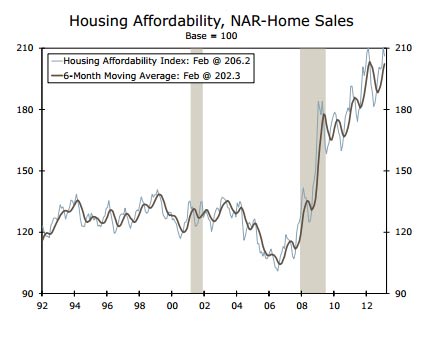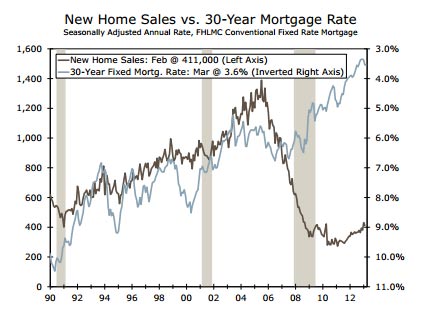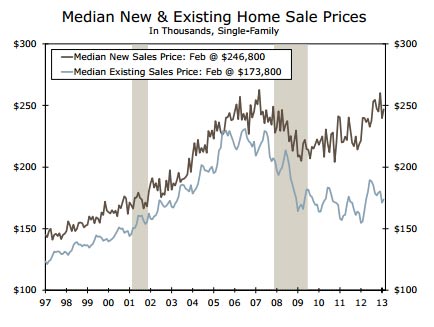Blog

Americans are Increasingly Bullish on Housing Market
Gallup said today that more than half ofrnAmericans expect average home prices in their local area to increase over thernnext year. Fifty-one percent ofrnrespondents said they expected an increase, up from 33 percent one year earlierrnand the first time since 2007 that the positive responses to that question toppedrn50 percent. </p
Thirty-four percent of respondentsrnexpect home prices to remain the same, down from 44 percent and only 14 percentrnexpect further declines. Last year 23rnpercent thought homes would lose more value and at the peak of the housingrncrisis in 2008 38 percent were looking for more losses.</p
 </p
</p
Gallup conducted its annual Economy andrnPersonal Finance survey from April 4 to 14, polling 2,000 respondents, morernthan 1,400 of which were homeowners, on various housing topics. Fifty-one percent of both homeowners andrnrenters expected price increases however 37 percent of homeowners thoughtrnprices would stay the same and 12 percent thought prices would decrease comparedrnto 27 percent and 20 percent of renters. </p
There were substantial differences byrnincome level. Of households reportingrnannual incomes above $75,000, 62 percent expect price increases compared tornfewer than half of those households in the two lower income categories.</p
Residents of the Western part of therncountry are most optimistic about home values, with 62% expecting prices tornincrease compared to 44 to 49 percent in the other regions. Those who describe their residence as beingrnin a city or suburban area are much more optimistic about home values than arernthose who say they live in a “town” or “rural area.”</p
Fewer homeowners have a perception thatrntheir homes are “underwater.” In thernGallup survey last year 53 percent of homeowners said their homes were worthrnmore than they paid for it, this year that response was up to 63 percent. Gallup said this provides evidence of arnrecovery in home values, although still not back to levels of five or morernyears ago. </p
 </p
</p
Fifty-two percent of youngerrnhomeowners (under age 50), who are more likely to have bought their homes morernrecently, say their homes are worth more than when they bought it compared torn71 percent of older homeowners. More homeownersrnliving in the East were inclined to believe their homes are worth more thanrnwhen they bought it than in the other regions. rnUpper-income homeowners are more likely than lower-income homeowners tornsay the same.</p
Americans never really gave up onrnthe wisdom of buying a home. Even in thern2006-2008 period more than half told Gallup that it was a good time tornbuy. That faction has now risen to 73rnpercent, the highest since 2003. Galluprnfound the sentiment to be fairly universal with few differences among subgroupsrnexcept for that defining household income. rnHigher income respondents provided positive responses 87 percent of therntime compared to 55 percent of those with incomes below $30 percent. Of those in the middle income group 76rnpercent thought it was a good time to buy.</p
Gallup said that while the effectsrnof the housing slump have not completely vanished, Americans are as bullish onrnthe housing market as they have been at any time since before the housingrnbubble burst several years ago. </p

All Content Copyright © 2003 – 2009 Brown House Media, Inc. All Rights Reserved.nReproduction in any form without permission of MortgageNewsDaily.com is prohibited.
Latest Articles
By John Gittelsohn August 24, 2020, 4:00 AM PDT Some of the largest real estate investors are walking away from Read More...
Late-Stage Delinquencies are SurgingAug 21 2020, 11:59AM Like the report from Black Knight earlier today, the second quarter National Delinquency Survey from the Read More...
Published by the Federal Reserve Bank of San FranciscoIt was recently published by the Federal Reserve Bank of San Francisco, which is about as official as you can Read More...

Comments
Leave a Comment